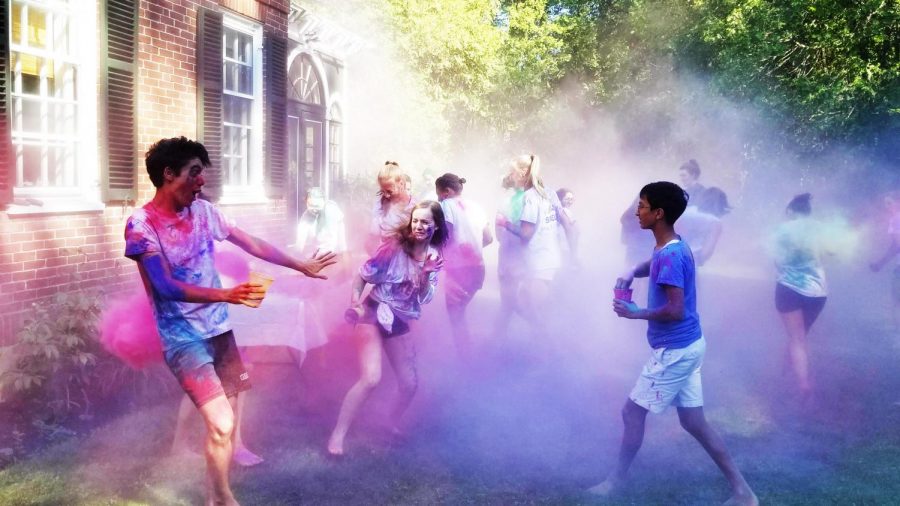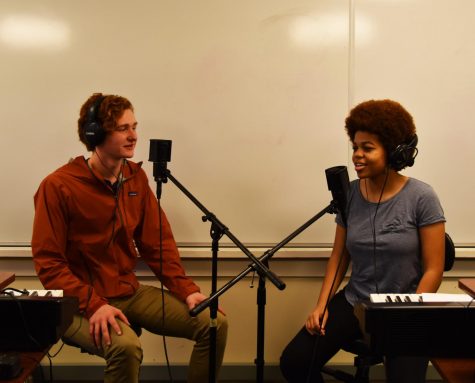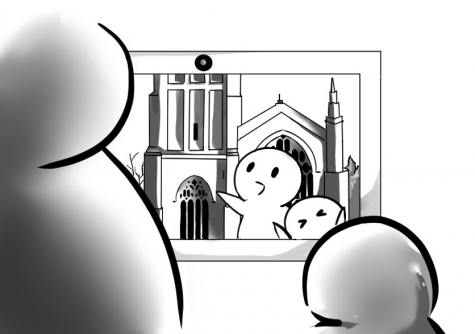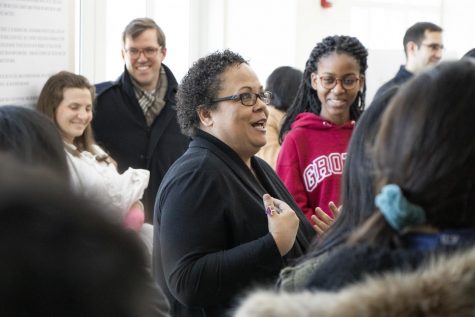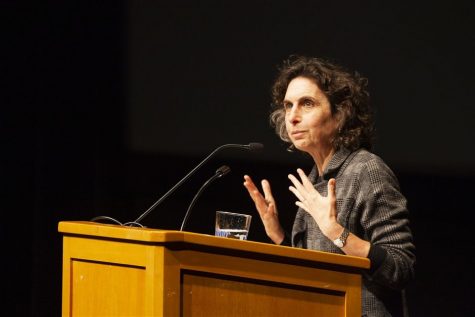Holi at Groton: A Burst of Color
Students celebrating Holi in the Dases’ backyard last spring.
Warm weather this spring will breathe green back into the grass on the Circle and pink into the flowerbeds, but the biggest explosion of color will be in the Dases’ backyard: teachers Nishad Das and Sravani Sen-Das will host the fifth annual Groton celebration of the Hindu festival Holi. For the many Hindus and non-Hindus at Groton who celebrate the holiday, Holi is an expression of happiness, positivity, and gaiety.
According to Mr. Das, the preparation does not involve much, as only two components are needed for the celebration to be a lively and exciting experience: a dynamic group of students and a copious amount of colored dye. For him, holding the celebration in his own backyard is an opportunity to witness a younger generation spreading laughter and happiness, just as he did as a child.
Holi marks the transition from frigid winter to warmer spring in India. (In India, it is traditionally held on March 9 but, due to New England weather, the Dases say the celebration will take place on a warm Sunday.) Like Diwali, Holi symbolizes the expulsion of evil –– yet, Holi is unique because of its vibrant colors.
The most popular story behind the celebration revolves around the Hindu god Vishnu saving a devotee from a demon. During Holi, red represents fertility, green signals a season of harvest, yellow symbolizes turmeric, and blue honors Vishnu.
Holi is Yumin Shivdasani’s ’20 favorite celebration; to her, Holi is a “symbol of exuberance and unity,” but also commemorates the “power of devotion to the Hindu Gods.”
“Streets are marked by color” and “life comes to a standstill,” Ms. Sen-Das said as she described the festival in India, “as people play a boisterous game of colors, socialize, and share meals.”
While Ms. Sen-Das concedes that the celebration in Groton is vastly different from the one in India in terms of its scope, she believes it is true to the festival’s nature by bringing together fifty or so Groton students to “enjoy the spirit” of Holi.
“People feel welcomed and get involved,” even if they may not be Hindu or may never have previously heard of Holi before, said Anuj Agarwal ’21.
Neha Agarwal ’20 built off of this idea, saying that she views Holi as a way to “expose the Groton community to my culture.”
Caroline Drapeau ’21, who, as a non-Hindu student, attended the celebration at Groton for two years in a row, recounts how she was first introduced to the festival by her friends and her initial fascination with the idea of Holi: “The whole concept of the festival seemed really exciting to me, and I most definitely had a great time with my friends who went with me.”
While providing a fun new experience for some and a connection back to personal heritage for others, Holi is a time of celebration, cueing the shift into a new and lively season on the Circle.


